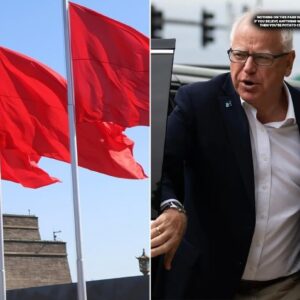In a surprising turn of events, Kyle Rittenhouse, a figure often associated with controversial political discourse, has canceled his planned appearance at a metal festival. His decision was reportedly driven by concerns over what he describes as the “woke” direction of the metal music community. Rittenhouse’s statement, “It’s sad that metal went woke just like that,” has ignited debate, both within and outside of the metal scene. This incident raises questions about the intersection of politics, music, and freedom of expression in the modern world.

Rittenhouse’s Rise to Fame and Controversy
Kyle Rittenhouse became a household name after being acquitted of all charges stemming from a 2020 shooting during a protest in Kenosha, Wisconsin. For some, he’s a hero who defended himself in a chaotic situation, while for others, he represents a troubling figure tied to gun rights and vigilante justice. His public persona, however, has expanded beyond the courtroom as he ventures into public speaking engagements, media appearances, and, more recently, the world of music.
Rittenhouse’s interest in metal music isn’t new, and he has spoken in interviews about his appreciation for the genre. Metal, known for its rebellious spirit, has long attracted fans who value freedom, resistance, and anti-establishment sentiments. This connection between Rittenhouse and metal culture seemed like a natural fit—until wokeness concerns emerged.
Metal Music and “Woke” Culture
For many fans, metal music has always been a sanctuary of nonconformity, where taboo topics and provocative lyrics reign supreme. However, in recent years, metal, like many other art forms, has seen the rise of socially conscious messaging. Bands and festivals have begun addressing issues such as racism, sexism, LGBTQ+ rights, and other societal problems. This shift has resonated with some fans, but alienated others, who feel that metal should remain an apolitical space for pure expression.
Rittenhouse’s cancellation of his metal fest appearance highlights this growing divide. In his statement, he expressed disappointment in the metal community’s embrace of “woke” ideals, suggesting that metal’s rebellious essence is being diluted by political correctness. His comments reflect the sentiment shared by some long-time metal fans, who believe the genre is losing its edge as it becomes more intertwined with progressive politics.
The Woke Divide: Fans React
The reaction from fans to Rittenhouse’s decision has been polarizing, mirroring broader societal divisions. On one hand, there are those who agree with him, lamenting that metal music—once a haven for outsiders and free-thinkers—has gone “woke.” These fans argue that metal should remain a space for raw emotion and unfiltered expression, rather than conforming to modern political movements.
“I used to go to metal shows to escape all this woke nonsense,” said one fan on social media. “Now it’s everywhere, even in metal. Kyle Rittenhouse is right; metal sold out.”
On the other hand, many metal fans have embraced the genre’s evolution, welcoming the inclusion of socially aware themes. They argue that metal has always been about challenging societal norms, and addressing issues like racism or sexism is a natural extension of that rebellion. These fans view Rittenhouse’s remarks as out of touch with the current cultural climate.
“I’ve been a metalhead for 20 years, and if standing up against racism and bigotry is ‘woke,’ then I’m proud that metal’s gone woke,” countered another fan online. “Metal is about freedom, and that includes the freedom to speak out against injustice.”
The Festival’s Perspective
The metal festival at the center of this controversy has not remained silent. In a statement released after Rittenhouse’s cancellation, organizers made it clear that they stand by their commitment to inclusivity and respect within the metal community. The festival, which features a diverse lineup of bands from various backgrounds, expressed disappointment over Rittenhouse’s decision, but stood by their values.
“We are proud to offer a platform where everyone can feel safe, respected, and included. Metal has always been about uniting people through music, and that includes fans of all races, genders, and orientations,” the festival organizers said in a statement.
This position aligns with the growing trend in the music industry toward fostering inclusive and safe spaces for fans and artists alike. While some may view this as “woke” ideology infiltrating metal, for others, it’s a necessary step forward in creating a more equitable world.
The Broader Implications for Metal and Beyond
The incident surrounding Kyle Rittenhouse’s metal fest cancellation reflects broader societal tensions over the role of politics in entertainment and culture. The term “woke,” once used to signify awareness of social issues, has evolved into a divisive label used by both sides of the political spectrum. For some, being “woke” represents a commitment to progress and justice, while for others, it signifies the overreach of political correctness.
In the context of metal music, this debate raises important questions. Can metal remain true to its roots of rebellion and nonconformity while embracing modern social justice movements? Or does the introduction of “woke” politics dilute the genre’s core identity?
As music and politics continue to intersect, the answers to these questions may ultimately depend on the fans themselves. Metal has always been a genre driven by its audience, and as society evolves, so too will the music that reflects its complexities. Rittenhouse’s decision to cancel his appearance may resonate with certain segments of the metal community, but it’s clear that the genre itself is evolving—and not everyone is on the same page.
Conclusion: The Future of Metal in a Woke World
Kyle Rittenhouse’s choice to cancel his metal fest appearance over concerns of wokeness is indicative of larger cultural debates happening across music, media, and society as a whole. As metal continues to evolve and integrate socially conscious themes, the divide between fans who embrace these changes and those who resist them is growing wider. Ultimately, metal’s future will be shaped by how its community navigates these challenges, and whether it can maintain its spirit of rebellion in an increasingly polarized world.
In the end, Rittenhouse’s remarks—“It’s sad that metal went woke just like that”—highlight the deep cultural rifts at play, but whether these divisions define or strengthen the genre remains to be seen.





